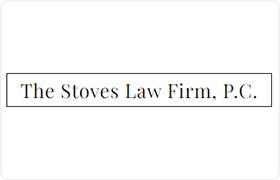Samantha Criminal Lawyer, Alabama
Sponsored Law Firm
-
 x
x

Click For More Info:
-
The Stoves Law Firm, P.C.
9 Office Park Cir Suite 105 Birmingham, AL 35223» view mapCriminal Defense Legal Expertise You Can Rely On
The Stoves Law Firm, P.C. provides outstanding Criminal Defense and Litigation services to individuals and businesses throughout the State of Alabama.
800-818-9390
Albert Jones
✓ VERIFIEDAccident & Injury, Divorce & Family Law, Criminal, Estate
Albert Jones is a practicing lawyer in the state of Alabama.
Anne Wilson Guthrie
✓ VERIFIEDBankruptcy, Family Law, Juvenile Law, Social Security, Divorce & Family Law
Anne Guthrie is a practicing lawyer in the state of Alabama. She received her J.D. from University of Alabama School of Law in 2000. Anne works at Wil... (more)
Leif Rush Hampton
Divorce & Family Law, Criminal, Personal Injury, Accident & Injury
Status: In Good Standing
FREE CONSULTATION
CONTACTGary L. Blume
Juvenile Law, Workers' Compensation, Divorce & Family Law, Criminal
Status: In Good Standing Licensed: 46 Years
John Brasfield
Real Estate, Family Law, Divorce, Criminal
Status: In Good Standing Licensed: 28 Years
Randal Simpson Ford
Tax, Mass Torts, Divorce & Family Law, Criminal, Accident & Injury
Status: In Good Standing
James Dwight Smith
Criminal, Lawsuit & Dispute, Real Estate
Status: In Good Standing Licensed: 42 Years
 Jay Stoves Birmingham, AL
Jay Stoves Birmingham, AL Practice AreasExpertise
Practice AreasExpertise


